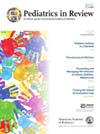抑郁症第 2 部分:治疗。
IF 1.2
Q3 PEDIATRICS
引用次数: 0
摘要
抑郁症治疗策略属于儿科实践的范畴,也是儿科学会和美国儿科委员会推荐的能力之一。可通过协作护理提供的治疗包括非药物疗法,如社会心理疗法和循证心理疗法,以及药物疗法和抑郁症监测程序。儿科医生在抑郁症护理方面可获得丰富的支持和指导,包括心理健康咨询和在线资料。本文章由计算机程序翻译,如有差异,请以英文原文为准。
Depression Part 2: Treatment.
Depression treatment strategies are within the scope of pediatric practice and among the competencies recommended by the Academy of Pediatrics and The American Board of Pediatrics. Treatments that may be provided through collaborative care include nonpharmacologic therapies such as psychosocial treatments and evidence-based psychotherapies, and pharmacotherapy and monitoring processes for depression. Abundant support and guidance are available to pediatricians in depression care, including mental health consultation and online materials.
求助全文
通过发布文献求助,成功后即可免费获取论文全文。
去求助
来源期刊

Pediatrics in review
医学-小儿科
CiteScore
1.30
自引率
0.00%
发文量
109
期刊介绍:
Pediatrics in Review (PIR) is the American Academy of Pediatrics’ monthly peer-reviewed continuing medical education journal, designed to keep the general pediatric clinician current in all areas of pediatric medicine and to assist those participating in the Maintenance of Certification program of the American Board of Pediatrics (ABP).
The journal is one of the key components of the Academy’s continuing medical education program: PREP® (the Pediatrics Review and Education Program). Together, PIR and the PREP Self-Assessment comprise PREP The Curriculum®.
Each PIR review article includes quiz questions formulated by topic experts.
 求助内容:
求助内容: 应助结果提醒方式:
应助结果提醒方式:


